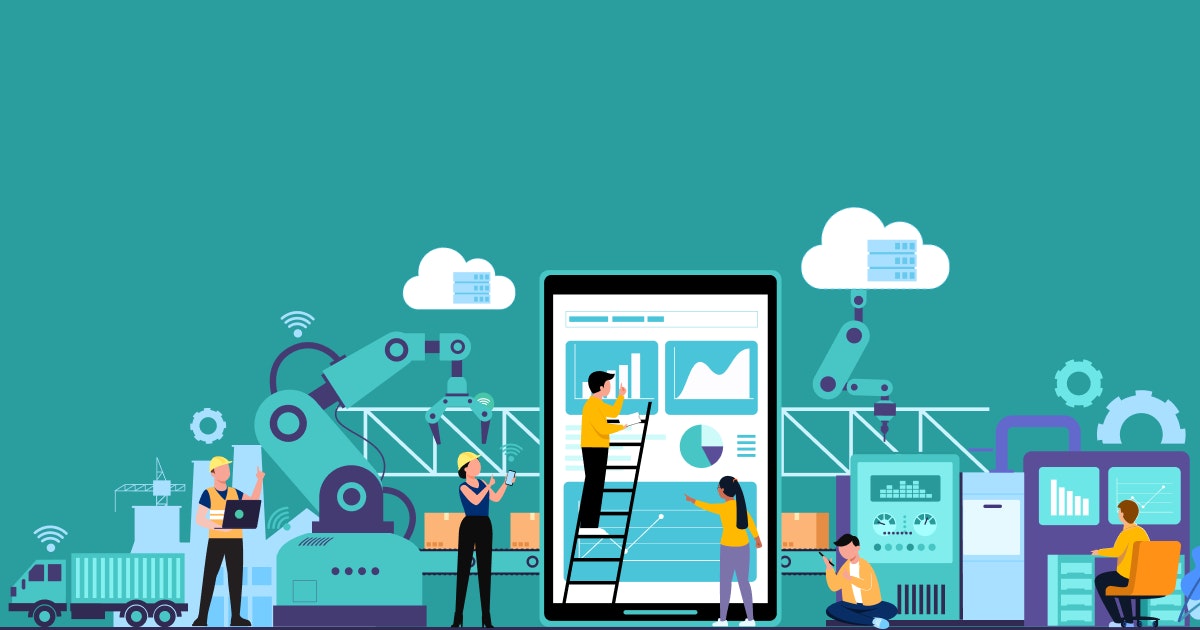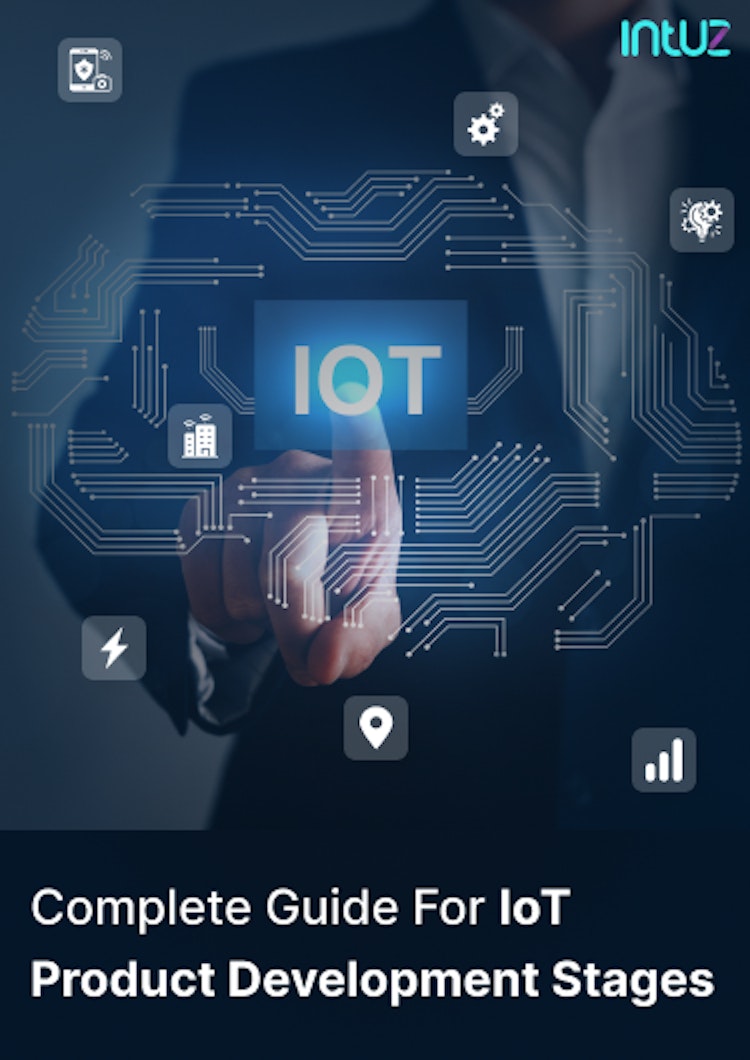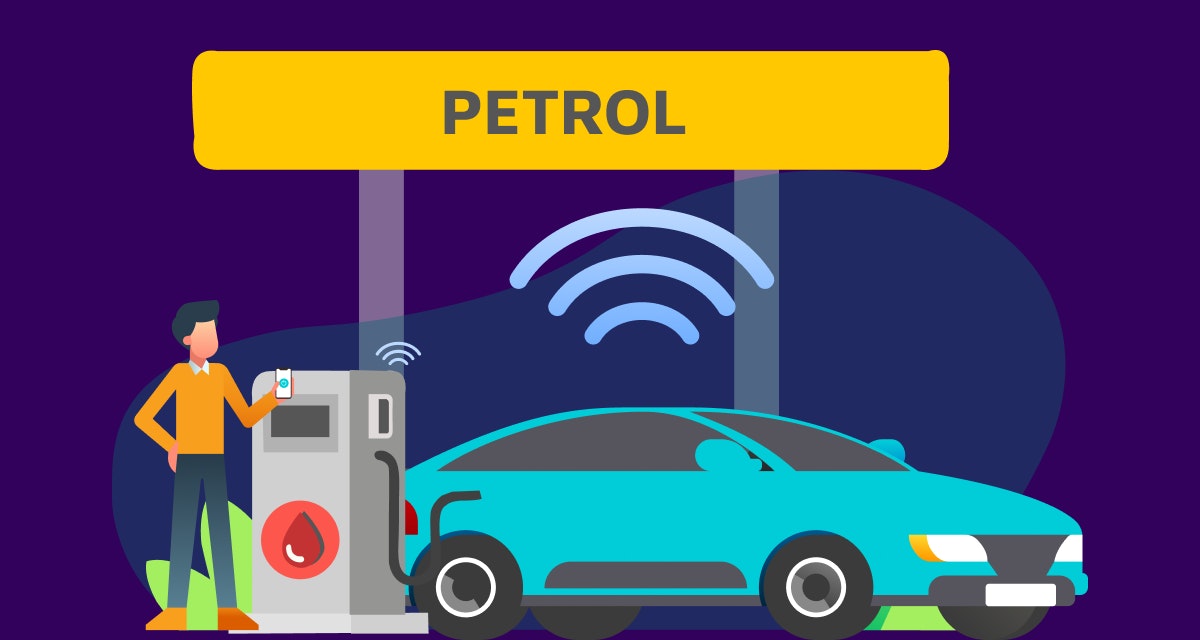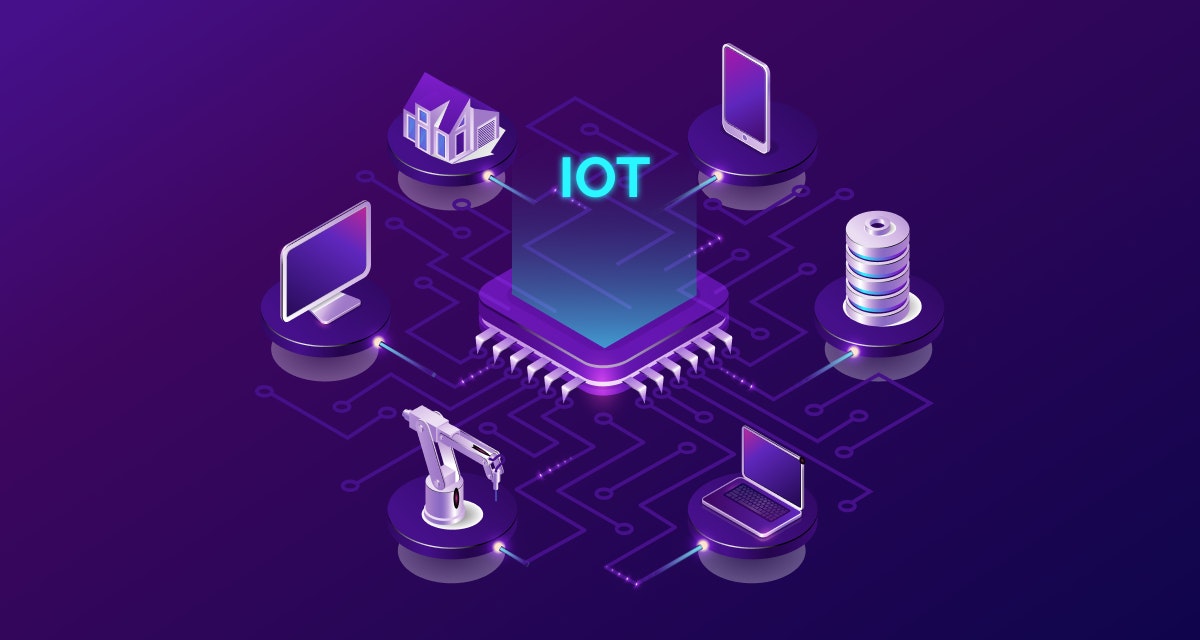Table of content
Unless you have been living under a rock, you would know that the Internet of Things or IoT is a global network of interrelated physical objects that communicate and exchange data with each other — over the internet — without any human involvement.
testOn the other hand, Industrial IoT focuses on Machine Learning, Big Data, and Machine-2-Machine [M2M] communication. IIoT applications exchange, collect, monitor, and analyze data at an industrial level to make business decisions swiftly.
Examples of such apps include medical devices, power plants, utility equipment management, and software-defined production processes.
What are the Industrial IoT gateways?
Industrial IoT gateways are specialized devices that connect operational technology (OT) systems with information technology (IT) networks in industrial settings. They act as a bridge between sensors, machines, and equipment on the factory floor and cloud-based analytics platforms.
Simply put, an Industrial IoT gateway is a physical computer of sorts that is locally deployed to gather, process, and analyze data at the edge of a network. They are similar to routers found in most homes but offer so much more in terms of processing, storage capacity, and memory.
IIoT gateways collect and study large volumes of data from connected devices, sensors, and machinery in an IoT ecosystem. The gateway pre-processes the information before forwarding it to the cloud platforms for its transformation into meaningful intelligence.
Imagine if one tiny sensor can generate tens of thousands of data points per second; pre-processing at the edge is a good idea! You can aggregate, summarize, and synchronize information from different devices and then forward it to the cloud.
IIoT gateways offer local processing and storage functionalities and autonomously control field devices based on inputs by sensors. Businesses that deploy IoT gateways see significant savings in their internet consumption as less raw data is sent to the cloud.
Optimize Your Industrial IoT with the Right Gateway!
Consult Our ExpertsTypes of Industrial IoT gateways
They majorly fall under two categories when deploying enterprise infrastructures:
a. Fanless IoT gateways
These are compact industrial computers that can be deployed in volatile environments with increased exposure to extreme temperatures, dust, debris, vibrations, and shocks.
b. Rugged IoT gateways
They add a more rugged outer enclosure for added reliability and durability.
The growing need for IIoT gateways
As the number of IIoT applications has grown over time, so have the data volumes being generated. The steep rise has necessitated the demand for IoT gateways to enter the picture and reduce the pressure on the cloud for storing, processing, and analyzing data.
Besides, they also receive information from the cloud, which they send back to devices for allowing self-contained device management in the field.
What are the main functions of industrial IoT Gateways?
1. Boosted efficiency in production
IIoT gateways can help improve production at factories by collecting information from various devices and sensors deployed there and using them to fine-tune the production process for higher and more effective output.
They can reduce human error and gain a wide variety of data concerning the manufacturing process. This information helps operators and organizations in optimizing their production lines.
2. Robust communication and control with flexible I/O
IIoT gateways facilitate swift communication between devices. Meaning, they enable machines to interact with other machines, environments, and devices.
IIoT gateways support various industrial protocols such as PROFIBUS, EtherCAT, Fieldbus, PROFINET, and Ethernet/IP, helpful in connecting different types of devices.
Suppose a company has legacy hardware, for instance, which cannot be connected to the cloud. In that case, industrial IoT gateways help connect them to the cloud and also allow them to control machinery and programmable logic controllers securely and remotely.
3. Real-time processing and decision-making
Industrial IoT gateways can gather and study the data collected locally, at the source itself, in real-time. This is convenient because such applications eliminate the need for data to travel a long distance to a data center for making sense of the information collected.
Moreover, equipment dealing with critical workloads can instantly gain insights from the data and apply them in their decision-making. Since we are talking about the machinery used in the industrial sector, it is possible that it may not be on the cloud.
Legacy paraphernalia has to deal with latency associated with sending, processing, and having the data sent back to an industrial setting.
This is not the case with IIoT gateways since they are locally located along with industrial computers. That means real-time data analysis and decision-making in as little as a single millisecond is possible.
4. Facilitation of predictive maintenance in manufacturing
If you are looking for a technology that can assist with predictive maintenance, then you have come to the right place. The data gathered by sensors and devices can be efficiently used to predict when a component in a piece of machinery could typically fail.
IIoT gateways apply prediction models to schedule maintenance before the breakdown occurs. You see, production lines operate 24/7. Failure of a machine can halt production, causing a delay in customer deliveries and a loss of profits.
But thanks to the insights provided by the IIoT gateways, factories can comfortably reduce or eliminate the costs associated with unexpected downtime that is detrimental to the entire production process.
Eight benefits of industrial IoT gateways
1. Compact design
One of the best advantages of IIoT gateways is that they have a compact design, enabling them to be installed in constrained spaces — not large enough to house full-size computers. The compact design is made a reality by passively cooling the IIoT gateway desktop, enabling manufacturers to place components close to each other.
2. Flexible power input
Industrial IoT gateways have a massive input voltage, ranging from nine to 50 VDC, making them an asset in different power input scenarios.
They are also equipped with additional features such as over-voltage protection, reverse polarity protection, and power surge protection — all of which come in handy in stabilizing the power being supplied to the system and avoiding damage to the sensitive internal components.
3. Industrial-grade components
Industrial IoT gateways are remarkably rugged. They can handle installations in harsh environments because they are constructed using industrial-grade components tested and validated to operate reliably in the most challenging conditions possible.
Plus, the outer closure of industrial IoT gateways is made of aluminum and steel that protects the most sensitive internal components in the system.
4. Fail-proof shock and vibration resistance
As mentioned previously, fanless IoT gateways can be installed in extreme environments constantly exposed to frequent shocks and vibrations. They eliminate the number of joints, cables, and screws used in the system, making them more reliable and prone to any extremity.
5. Wide temperature range
Both fanless and rugged IoT gateways have a wide temperature range, falling between -40⁰C to 85⁰C. Deploying either of the gateways in extreme environments is not a problem at all. It does not matter if you place a gateway in the middle of the Gobi desert during the summer season or in Greenland in winters — the application will operate reliably and optimally throughout.
6. Rich connectivity options
If you are looking to install an industrial IoT gateway in a setup where internet connectivity is an issue, that is a good move. The gateways have many wired connectivity options, including cellular and wireless, which allow them to connect to the internet in volatile environments.
WiFi especially offers flexibility to organizations to configure the range of internet consumption as per their specific requirements. Alternatively, cellular connectivity options include LTE, 4G, and 5G. IoT gateways can also be connected to two different internet service providers if needed as they come loaded with dual SIM slots.
7. High energy efficiency
Industrial IoT gateways are energy-efficient, making them ideal for deployment in environments without a stable power source. They consume less energy than a regular desktop computer as they are configured using low-powered Intel processors such as Celeron® J1900 and Intel®.
However, the savings from a single IoT gateway are negligible. It is only if you deploy them in great numbers would you notice a considerable reduction in costs.
8. Exceptional security
The primary purpose of IoT gateways is to transmit data across devices through the use of sensors. Naturally, security has to be paramount to make this technology work.
That is why industrial IoT gateways boast of enhanced security functionalities, employing TPM 2.0 — a secure crypto-processor that provides hardware-based security and is responsible for making IoT gateways tamper-resistant.
Example of industrial IoT gateways
- Dell Edge Gateway 5000 Series
- Cisco IR1101 Integrated Services Router
- Siemens SIMATIC IOT2050
- Advantech UNO-2484G
- HPE Edgeline EL300 Converged Edge System
These gateways are designed to connect operational technology (OT) with information technology (IT) networks in industrial environments. They typically offer:
- Rugged design for harsh conditions
- Multiple connectivity options (e.g., Ethernet, Wi-Fi, cellular, serial)
- Edge computing capabilities
- Security features
- Protocol conversion
Key considerations for choosing an Industrial IoT gateway
If you think about IoT devices in general, you will agree that there is no field that they have left untouched. From making your home "smart" with IoT devices to monitoring your industrial equipment while sitting in your office chair, IoT has become an indispensable part of our lives.
An IoT gateway is an essential component of the IoT infrastructure because it connects the cloud with numerous IoT devices and sensors. It is a combination of hardware and software that communicates with the end device seamlessly.
In industries, this technology particularly comes in handy because it helps track machinery performance, ultimately bringing down downtime and maintenance costs. It offers the perfect way to manage data collected by IoT sensors.
However choosing an industrial IoT gateway can be an overwhelming task, especially when you do not know what factors you should consider making an appropriate choice. Let us make this easy for you. Here are ten key points to note during the selection process:
1. Company's end goal
What is it that you want to achieve with your gateway? What is its end goal? There are many types of sensors that could be integrated depending on the kind of data you plan to collect via sensors. So you have to be clear about your purpose.
For example, the IoT gateway needed in a manufacturing unit will be different from that used by a shipping company. That is because the manufacturing sensor data is related to machinery performance, downtime, and so on.
On the other hand, the latter will deal with metrics such as fuel consumption and mileage and basic information around the fleets. Since the requirements are different in the two sectors, using the same IoT gateway does not make sense.
2. Security strength
We are living in a day and age where cybercrime is relatively common. Massive brands like Walmart and Domino's have been victims of cyber theft. Imagine having thousands of sensors integrated into the IoT gateway, and all the data gets hacked?
That is scary, but it is a possibility that means you must not take its security lightly. Please be sure to confirm the potential IoT gateway has the appropriate security features for data protection in your selection process.
Ask the vendor if they have the required encryption standards and authentication to protect your data from getting phished. To make your life easier, here are a few top encryptions you should know about: DES, RSA, AES, and Twofish Encryption Algorithm.
3. Storage facilities
Data protection is one thing, but what about storage? Your IoT gateway will collect data volumes from multiple devices, sensors, and machines.
It needs someplace to store it all. Storing the data on the cloud would not be possible because what if the gateway loses internet connectivity? Therefore, the best bet is to use the gateway's local storage.
A smart building generates about 260 GB of data daily, and we are sure smart cities would produce so much more. Depending on the requirement, choose an IoT gateway with an appropriate storage space that can be expanded when the demand increases.
4. Ruggedness and durability
Industrial environments are no place for delicate electronics. Your IoT gateway needs to be tough as nails, ready to withstand everything from extreme temperatures and humidity to vibrations, dust, and electromagnetic interference. Look for ingress protection (IP) ratings that match your environment - IP67 for water resistance, for example.
Fanless designs often fare better in dusty conditions. Consider operating temperature ranges - will your gateway keep its cool in a sweltering factory or a frigid outdoor installation?
Don't forget about certifications relevant to your industry, like ATEX for explosive atmospheres. A rugged gateway isn't just about avoiding downtime; it's about ensuring your IoT investment can thrive in the harshest conditions your industry can throw at it.
5. Installation location
Where your IoT gateway is deployed is also an essential factor to consider, and it varies based on your industry niche. For instance, if you manufacture vehicles, having all the sensors indoors makes sense because they dissipate a lot of heat and need to be in an HVAC room.
On the other hand, placing outdoor sensors at a height to withstand extreme weather for a telecom firm is absolutely necessary.
6. Protocol support
In the industrial IoT world, speaking the right language is crucial. Your gateway should be a master linguist, fluent in both modern and legacy protocols. On the industrial side, think Modbus, PROFINET, EtherNet/IP, and OPC UA. For IoT connectivity, MQTT, CoAP, and AMQP are must-haves. But don't stop there - consider protocols specific to your industry, like BACnet for building automation or IEC 61850 for power systems.
The ability to translate between these protocols is a superpower, allowing seamless integration of old and new systems. Look for gateways with robust protocol libraries and the flexibility to add custom protocols. In the Tower of Babel which is industrial IoT, your gateway should be the ultimate translator.
7. Edge computing
The global edge computing market is growing rapidly because of the increase in demand by businesses across industries for automated decision-making and low-latency data processing. Therefore, please make sure your IoT gateway has edge computing apps that can help process and store sensor data.
The gateway should handle OTA and diagnostics, enhance reliability, decrease latency and ensure robust data security. Given that edge computing is here to stay, it is necessary to keep up with the new technologies.
8. Connectivity range
There is no point in IoT if the connectivity is poor across devices. You must, therefore, ensure that the gateway supports connection to the latest connectivity protocols, and you can access the data on your smartphone and computer.
Thankfully, most gateways today support nearby connectivity through Ethernet, Bluetooth, LoRaWan, and NB-IoT. If you are looking for an option beyond these, choose a gateway that supports LTE, GPRS, and GSM.
Besides, check if the IoT gateway supports protocols like Modbus, HTTPS, and TCP/IP. Of course, having hardware connection options such as RS485 or a USB port will be a great add-on.
9. Power efficiency
In the world of IoT, every watt counts. An energy-hungry gateway can drain your budget and limit deployment options. Look for gateways designed with power efficiency in mind - low-power processors, sleep modes, and intelligent power management features.
For remote or mobile applications, consider gateways with wide input voltage ranges or the ability to run on renewable energy sources like solar. Some gateways even offer Power over Ethernet (PoE) capabilities, simplifying installation. But power efficiency isn't just about consumption - it's about reliability too.
Features like uninterruptible power supply (UPS) support can keep your gateway running through power hiccups. In IoT, a gateway that sips power instead of guzzling it can be the key to unlocking new possibilities.
10. Equipment compatibility
You might choose an IoT gateway based on the machinery you are using now. But what if you want to upgrade in the future or are currently using legacy hardware? Are you optimistic your IoT gateway will work with those machines even then?
Therefore, you need to check if the gateway is compatible with legacy and advanced equipment, and scalability should not affect your machinery and IoT gateway's compatibility. That will save you a lot of money and headaches in the future.
11. Future flexibility
Purchasing machinery is expensive equipment, so is choosing an IoT gateway. Therefore, you need to ensure your gateway can be integrated with your equipment. Even if you are looking to expand, the gateway has a robust enough architecture with a particular focus on security that does not hamper your operations.
12. Smooth integration
Many factories often use legacy equipment with long life spans. It is rarely economically feasible to upgrade the machines to connect to the cloud directly. In these cases, the gateway chosen should have support for the existing devices to integrate all the data from the factory without any problem. Purchasing new gateways or machinery is not viable.
13. Customization options
Your IoT gateway should be customizable per your changing business requirements, industry niche, and end goal. Whether it comes to increasing its storage space, installing additional security plugins, or connecting multiple sources, your IoT gateway should be completely personalized as per your objectives. It should be flexible.
Industrial IoT gateway devices
Industrial IoT gateways are devices that connect operational technology (OT) systems with information technology (IT) networks. They serve as a bridge between sensors, machines, and the cloud, enabling data collection, processing, and transmission in industrial environments.
Some common industrial IoT gateway devices include:
- Dell Edge Gateway 3000 Series: Compact, rugged gateways suitable for space-constrained installations. Used in transportation, industrial automation, and energy management.
- Cisco IR1101 Integrated Services Router: Highly secure, ruggedized gateway for harsh environments. Often used in utilities, oil and gas, and smart cities.
- Siemens SIMATIC IOT2050: Flexible, open platform for edge computing and data processing. Popular in manufacturing and process industries.
- HPE Edgeline EL300: Converged edge system that can handle data-heavy workloads. Used in retail, manufacturing, and telecommunications.
- Advantech UNO-2000 Series: Modular design allows customization for various industrial applications. Common in factory automation and machine monitoring.
These devices typically offer features like multiple connectivity options, robust security, industrial-grade design, and support for various protocols. They enable functions such as data aggregation, edge computing, protocol conversion, and secure cloud connectivity in industrial IoT deployments.
Get top-notch industrial IoT solutions!
Explore NowOver to you
There is no doubt in our minds that IoT gateways have a significant impact on the successful implementation of an IoT application. Many industrial IoT projects falter during deployment and scalability because of the incorrect choice of the gateway.
Therefore, it is advisable for factory owners and manufacturers to carefully evaluate all aspects of the gateway before making a final decision.
They should choose a system that can process, handle and streamline industrial data in real-time without causing any up-gradation and security problems over a period of time.
If you want to build an intelligent IoT app for your business, cost-effectively and hassle-free, book a free consultation with us to understand your requirements better.
Our IoT application development team has worked on many IoT projects in many niches, and we are sure we can quickly build you the system of your dreams. So, what are you waiting for? Drop your details here so we can get back to you at the earliest.







